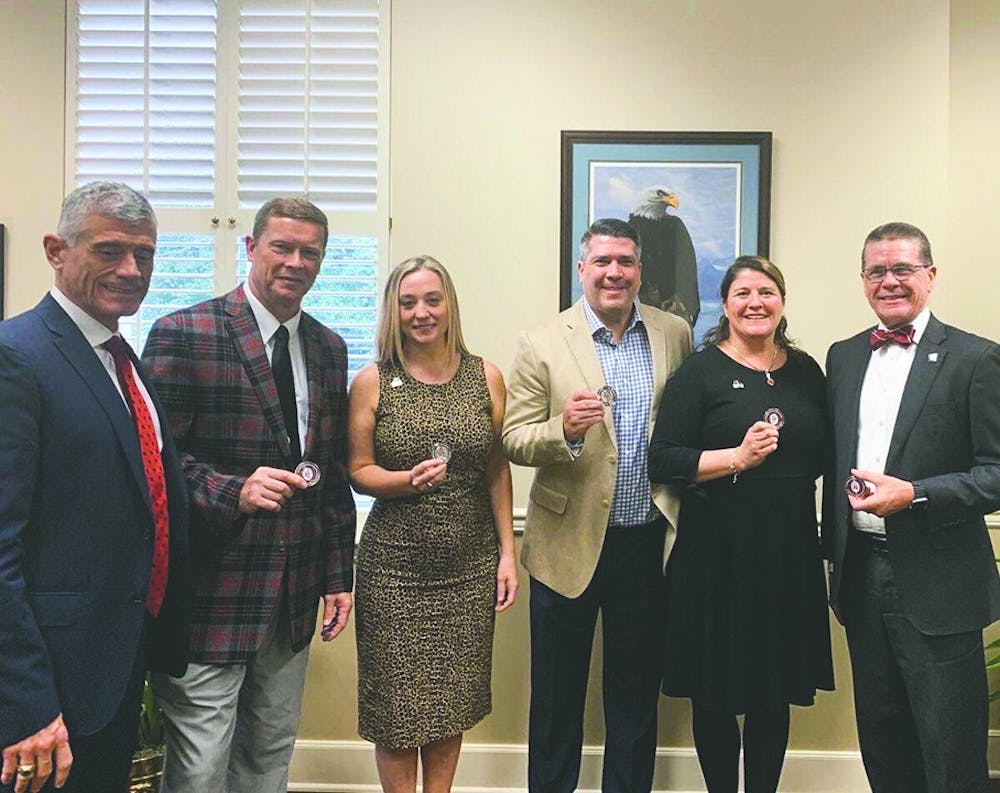According to U.S. News & World Report, South Carolina ranks No. 43 in the nation in education. Transition to Teaching at USC is trying to fix that.
Transition to Teaching is a federally funded program at USC that plans to support aspiring teachers while also providing students in rural communities with consistent and high-quality education.
George Roy, associate professor of middle level education, is one of the primary investigators for the grant that is funding Transition to Teaching.
According to Roy, one of the main purposes of the initiative is to encourage people who might not have studied education for their undergraduate degree to go into teaching. The program takes 14 months to complete, and they’re looking for 24 students who are interested in teaching middle level and elementary education, especially in mathematics and science.
“I would describe it as a residency program, and one in which we take individuals who are outside of education and provide a $15,000 stipend as well as the opportunity to get a master’s in education while they work in a school district at the same time,” Roy said.
Roy said the initiative was specifically focused on providing educators to Orangeburg County and Colleton County, which are both experiencing difficulty in finding enough qualified teachers. In the 2017-2018 school year, the Colleton County School District was experiencing teacher turnover rates of 15.6%, and the Orangeburg County Consolidated School District 3 had turnover rates of 17.1%.
“Like much of the state and much of the United States, teachers are leaving school districts much more quickly than they did in the past, and what we’re finding is that rural communities are having an exceptionally difficult time in filling those positions,” Roy said.
Jessie Guest, project manager for Transition to Teaching at USC and coordinator of graduate certificates in play therapy, explained how low teacher retention rates and lack of consistency can affect the academic and emotional development of children.
“Coming from a social-emotional perspective for the students in rural counties, seeing a teacher remain in the school and being consistent, that consistent face really is meaningful," Guest said. "You might not have them every grade, but if you remember a teacher that really made an impact on you, maybe in third grade or even in middle school, and being able to go back and visit them ... is something that can be unique to those communities that’s not always unique to others.”
Thomas Hodges, associate dean for academic affairs in the College of Education, further addressed the issue of low retention rates.
“One of the things we know about our teacher shortage is it has less to do with recruiting people into the profession and more to do with keeping teachers in the classroom once they're there. And certainly the data from South Carolina, but it’s true nationwide as well, is that we lose an alarming number of teachers in the first three to five years of service,” Hodges said.
According to the Center for Educator Recruitment, Retention and Advancement (CERRA), of the 6,650 teachers that left South Carolina schools during or at the end of the 2018-2019 school year, 36% had five years or less of experience.
Hodges said teachers are unable to gain the crucial learning lessons that come with experience if they don’t stay in the profession long.
“If they don’t stay in the profession, then they don’t have the opportunity to learn, and that learning doesn't end up promoting kids’ academic achievement. So the more that we can keep teachers in the classroom, the more that they can become veteran teachers and learn within their jobs, then the better they're going to do at serving South Carolina’s kids,” Hodges said.
Roy said he believes the program has the potential for change.
“I also believe that our educational system, if it’s really based equitable, we can change lots of people’s lives, and so it becomes very important to us as a group to think about that deeply and then most importantly help students who are in places where it’s hard to get teachers. Just provide for them and really be cognizant of their needs,” Roy said.
Roy said he understood how many college students often change their minds about their future career path and that students should not feel discouraged from teaching because they realized their passion for teaching late in their college careers. According to Roy, that’s exactly one of the reasons why Transition to Teaching is being established at USC.
“Often, someone who comes from a different preparation background has a different perspective, and this project specifically is geared at people who are thinking about changing careers,” Roy said.

